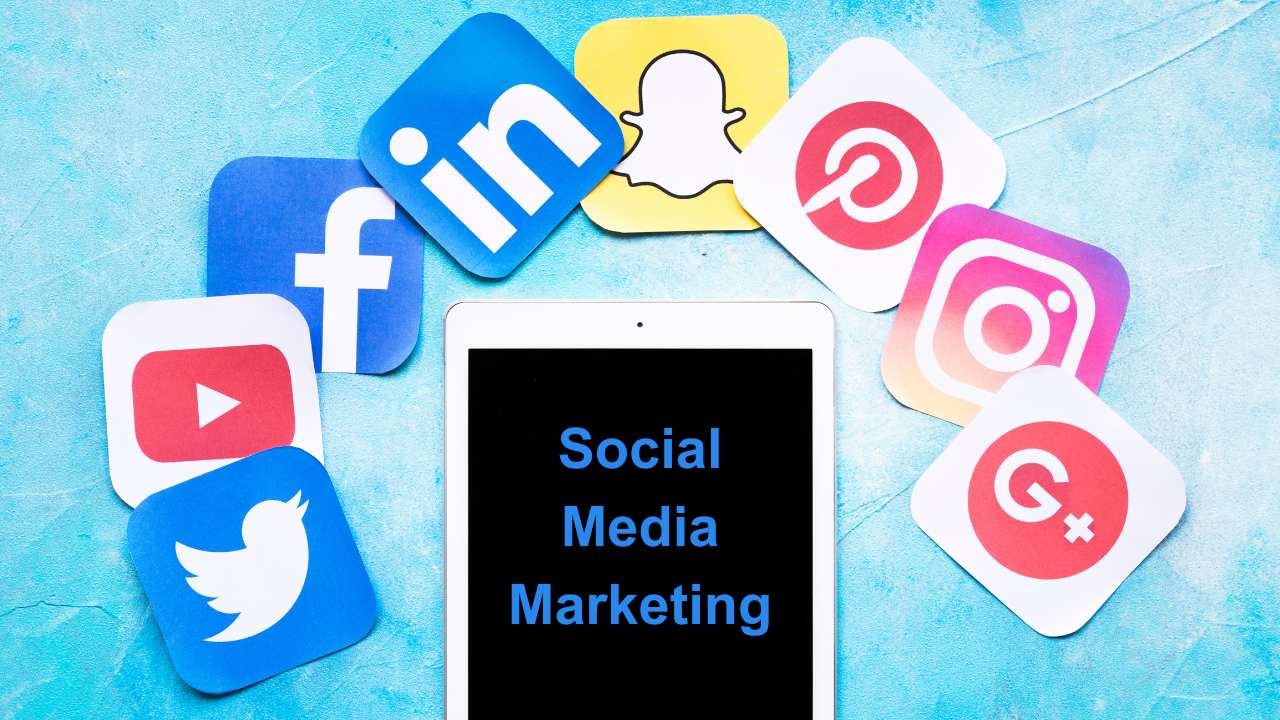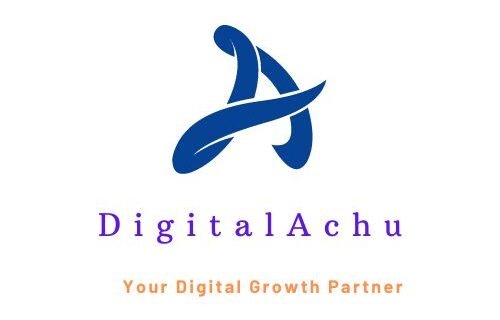Social Media Marketing

Introduction
Social Media Marketing (SMM) is a proven digital strategy that uses social media platforms to engage audiences, promote brands, and drive engagement with target customers. At a time when billions of people access social media every day, SMM has become essential for businesses looking to strengthen their presence online while developing meaningful customer relationships.
Social media marketing (SMM) involves developing and sharing content tailored specifically to the interests and behaviors of a target audience, from blog posts and engaging images to videos and polls. SMM extends beyond organic posts with paid ads on platforms like Facebook, Instagram, Twitter, LinkedIn or TikTok that reach larger or more specific target groups.
One of the key benefits of social media marketing lies in its ability to foster direct dialogue between brands and their target consumers, creating brand loyalty while also gathering insight into customer preferences and feedback. Furthermore, these platforms provide robust analytics tools which enable marketers to track campaign performance real time and adjust strategies as necessary for optimal results.. Social media marketing is an economical and flexible method to increase brand recognition, drive website traffic, and ultimately boost sales – an indispensable element of modern marketing strategies.
What is Social Media Marketing

Social media marketing (SMM) leverages the dynamic capabilities of social media platforms as dynamic channels for promoting products, services, or brands. SMM employs a multifaceted approach involving the creation and dissemination of engaging content tailored specifically for target audiences. Actively engaging followers via comments, shares, likes helps SMM build meaningful connections that strengthen brand loyalty while meticulous analysis of campaign performance aids in refining strategies in order to maximize reach and engagement.
SMM serves the goal of driving traffic to a website, thus increasing brand visibility and customer conversion rates. Businesses use social media channels like Facebook, Instagram, Twitter and LinkedIn as platforms for increasing brand recognition while also building their community presence around their products and services. Thus, SMM serves as a dynamic vehicle through which businesses interact directly with their audience members, foster brand advocacy efforts, and meet overarching marketing goals in an ever-evolving digital environment.
Types of Social Media Marketing

1) Content Marketing:
Content marketing is the foundation of marketing strategies for social media, which is focused on creating relevant and interesting content that will draw viewers in and encourage conversion. Content marketing can be described in a variety of formats like blog posts informationgraphics, videos, infographics, and podcasts. By creating informative, entertaining or inspirational content that is in tune with their audience’s desires or interests, companies strive to become the most authoritative voice within their particular field building confidence with their audience and increasing the loyalty of their audience. Social media content marketing requires tailoring content specifically for each platform’s capabilities while also scheduling posts in order to increase the reach and engagement.
2) Influencer Marketing:
Influencer Marketing entails working with those who have large and active social media followings to advertise the products and services they offer. Influencers, whether they are experts from industry, celebrities or micro-influencers who have specific followings – have earned credibility and trust among their fans and their endorsement is important for companies. Companies can leverage influencer partnerships to boost their message to customers, boost brand recognition, and boost conversions. Influencer marketing campaigns typically contain sponsored content or product reviews, which work seamlessly with the influencer’s style of presentation of content and the preferences of their audience.
3. Paid Social Media Adverts:
Paid social media marketing involves placing ads that are targeted on different social media platforms to connect with specific demographic, interest or behavioral target groups. Platforms such as Facebook, Instagram, Twitter, LinkedIn and TikTok provide companies with effective advertising solutions that allow them to create extremely targeted ad campaigns that aim at achieving their goals in marketing. Paid social media advertisements come in various forms and styles like video ads, image ads, carousel ads stories ads, or sponsored posts. Companies that invest in paid ads are able to easily reach their targeted people, increase leads, and increase sales – by making spending adjustments and targeting settings and ad formats that are flexible enough to improve the effectiveness of campaigns.
4. Social Media Contests and Giveaways
Contests and giveaways for social media are effective ways of creating engagement with audiences, increasing interactions and boosting brand exposure across social networks. These types of campaigns usually engage users by encouraging them to take certain actions, such as liking and commenting, sharing or tagging their friends – with the possibility of prizes, discounts, or special offers handed to participants as rewards! These types of campaigns do not just entice people to participate but can also boost the reach of your brand as people are able to share the campaign with their networks, thereby increasing organic growth and creating an active community for your company!
5. Social Media Management and Engagement
Social media management entails the creation schedule, publishing, and monitoring content across multiple social media platforms to maintain a lively and active online presence. Content creation requires creating a calendar of content, choosing relevant content to share, designing captivating captions and images, posting them at times that are most likely to reach the intended audience and scheduling them for times when your audience is most likely to be on the internet.
Social media management requires active engagement with followers through responding promptly and honestly to any messages, comments and mentions that are sent their way. Through dialogue in two ways and establishing connections with their intended audience, companies can build the trust of their customers and gather feedback in a timely manner while also addressing the needs of customers directly.
6. UGC: User-Generated content (UGC)
User-Generated content (UGC) is any type of media that is that is created and shared by customers or users that feature or referencing brands, like videos, photos reviews, testimonials, or posts on social media. Engaging and making use of the power of user generated material (UGC) is a successful social media marketing approach since it is not only relevant and authentic content for viewers to read but also provides social proof to prove the value and importance of a brand.
Businesses can promote users to create content (UGC) through contests or displaying it on official social media channels or by creating hashtags focused on customer experience. Through incorporating UGC as part of their marketing strategies businesses can increase the engagement of their customers, while also building a community while boosting their message organically.
7. Social Media Analytics and Monitoring
The process of social media analytics and monitoring involve gathering analysis, analyzing and interpreting information related to the performance of social media to evaluate the effectiveness of marketing campaigns, comprehend the behaviour of users, and take informed decisions based on data. Keep track of key metrics like reach, engagement and impressions, click-through rate as well as conversion rates and followers’ growth across different channels of social media. By using analytics tools and insights companies can assess the effectiveness of social media activities analyze patterns and trends and adjust strategies to obtain the most effective outcomes.
Social media monitoring involves monitoring the brand’s mentions, comments and conversations across different social media platforms to assess the impact of sentiment analysis, find opportunities, and swiftly resolve any concerns or issues related to their business or their brand. By being aware and proactive, companies can manage their online reputation, while increasing customer satisfaction and resulting in significant improvement in your social media advertising strategies.
Benefits of Social Media Marketing

Social media marketing has many benefits to companies that want to succeed in the world of digital media:
- Increased brand awareness Social media platforms offer an enormous and diverse user base that offer businesses unbeatable opportunities to increase their brand’s recognition and visibility. Through constant engagement with users via engaging content and strategically planned interactions, brands can boost their profile and establish themselves as experts in their field.
- Improved Customer Engagement Direct communication via social media facilitates genuine interactions between brands and their customers and creates a sense of community and strengthening relationships. Through responding promptly to queries by addressing issues, responding to inquiries, and accepting feedback, businesses can create trust, loyalty and build a sense of advocacy among their followers.
- Improved Customer insights Social media analytics offer businesses valuable insight into demographics of the audience as well as their preferences, behaviours and the overall mood. Through the analysis of these metrics, companies can gather actionable information to improve the marketing strategy, modify the content they offer, and create more customized experiences that are a hit with their intended customers.
- higher conversion rates Targeted advertisements and content that is relevant to particular segments of an audience can dramatically increase conversion rates. Social media platforms have sophisticated targeting options, which allow businesses to connect with customers based on variables such as demographics, interest and behaviours, thus increasing the chances of turning prospective customers to customers.
- Cost-effective Marketing Social media marketing offers an economical alternative to traditional methods of marketing like television, print or radio ads. With a minimal investment in financial resources businesses are able to get their message across to a wide public and get tangible results with targeted campaigns, sponsored content as well as organic interaction.
- Enhances Brand loyalty Regular engagement, individual interactions and consistent communications through social media can contribute to the development of an enduring customer base. By fostering relationships with their customers and showing genuine concern and concern, businesses are able to increase brand loyalty and encourage advocacy, leading to repeated purchases and positive word-of mouth referrals.
- Traffic Growth sharing captivating content via social media platforms could generate massive traffic to a brand’s website blog, website, or online store. Utilizing the power of social media, companies can boost their reach with their content and attract new customers, which in turn can boost sales and conversions.
In fundamental terms social media marketing enables businesses to broaden their reach, improve relationships with customers, gain valuable information, and produce tangible business outcomes at a reasonable cost which makes it an essential element of modern-day marketing strategies.
Social Media Marketing Tools
Tools for social media marketing are indispensable tools in streamlining and optimizing management of efforts on this channel, enabling companies to engage with customers effectively while meeting marketing goals. Here are a few widely used social marketing via media tools:
Hootsuite Hootsuite is an all-in-one software platform for managing social media that enables individuals and businesses to post, track conversations, evaluate multiple platforms from one dashboard, schedule posts in advance and track live-time results all from within one program. Boasting features such as scheduled content publishing, live monitoring and precise analytics capabilities – Hootsuite helps businesses make the most of their time while expanding the reach of their social networks.
Buffer Buffer is a widely used tool to schedule posts, manage multiple accounts and analyse social media performance. With its user-friendly interface and capabilities for scheduling posts, this powerful social media management platform helps organizations develop and execute an effective social media strategy.
Sprout Social provides brands with an integrated suite of social media management, analytics and engagement tools designed to increase their social media presence. From publishing and scheduling content to deep analyses of audience member behaviour and insights gathered over time Sprout Social equips businesses with the necessary tools needed to maximize their social media strategies and achieve results.
Canva: Canva is an intuitive graphic design platform that makes creating stunning posts for social media easier. Boasting various templates including graphics and templates as well as editing and design tools, Canva allows businesses to craft professional-looking graphics and images in order to increase online visibility while engaging their target audiences more effectively.
BuzzSumo BuzzSumo is a content search and discovery tool, helping businesses identify the most sought-after topics, users and content within their industry. By analysing trends on social media and performance data, it enables businesses to produce more targeted and engaging content that resonates with their target audiences.
Google Analytics: With its detailed insights into user behavior, Google Analytics enables businesses to evaluate the efficacy and effectiveness of social media marketing campaigns on site traffic, conversions and sales. By monitoring key performance indicators and metrics indicators, businesses can measure efficacy and effectiveness while making data-driven decisions for improving their strategy.
Socialbakers: Socialbakers provides insights and solutions for managing content for businesses to successfully use social media marketing. From tracking performance and competitor analysis to publishing and content planning, Socialbakers equips businesses with all of the tools and information required for social media success.
TweetDeck is an effective Twitter control tool which enables users to manage multiple accounts, schedule tweets and monitor conversations live in real-time. Thanks to its customized Dashboard and sophisticated filtering features, TweetDeck allows businesses to stay active on Twitter while optimizing their impact and presence across its platform.
Later Later is an Instagram scheduling and analytical program specifically created to assist businesses. Boasting visual content scheduling capabilities, hashtag suggestions, and in-depth analyses, Later helps businesses optimize their Instagram strategy while increasing engagement on the platform.
Tailwind It is an app designed to aid in the management of Pinterest and Instagram that offers analytics, scheduling, content discovery and intelligent scheduling features – such as intelligent scheduling with intelligent posting scheduling options for each social platform – intelligent hashtag suggestions and detailed analysis – that allow businesses to maximize reach and increase engagement on these visual-focused social networks.
Social media marketing tools give businesses the capability and know-how they need to efficiently control their presence on social networks, interact with followers, and meet marketing goals in today’s digital era.
Conclusion
In the end the social media marketing process is an essential part of a comprehensive online marketing plan. It can complement other marketing strategies that use digital media including search engine optimization (SEO) as well as mobile marketing and email marketing, by allowing immediate interaction and interaction with a large population. Social media marketing harnesses using the potential of social media to boost brand recognition as well as build customer relationships and boost visitors to websites, which helps SEO initiatives.
As mobile marketing grows due to the growing usage of smartphones social media platforms are becoming increasingly important due to their large mobile users. By integrating mobile marketing into strategy for social media, companies can connect with customers wherever they are to ensure their brand is prominent in the minds of their customers.
Marketing through email can also benefit from the use of social media for marketing. By sharing sign-up forms for email on social networks, businesses can expand their email lists as well as using social media to promote the messages they send via email.
Overall the social media marketing tool is an incredibly versatile and dynamic instrument that when paired with mobile marketing, SEO along with email marketing results in an effective synergy that propels growth for businesses. It allows businesses to remain relevant in a digital world and adapt to changing trends in consumer behavior and technological advances. Adopting social media marketing isn’t just an option, it’s a requirement to sustain success in today’s competitive digital environment.
